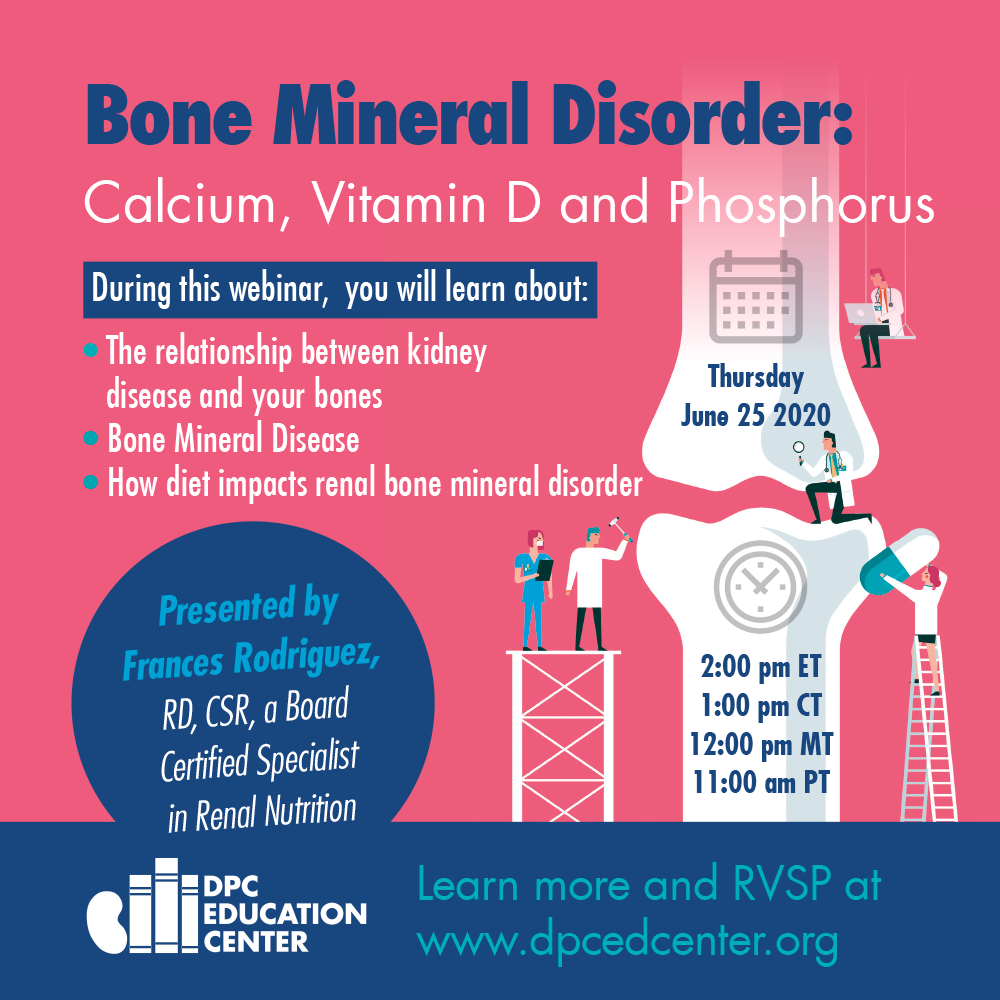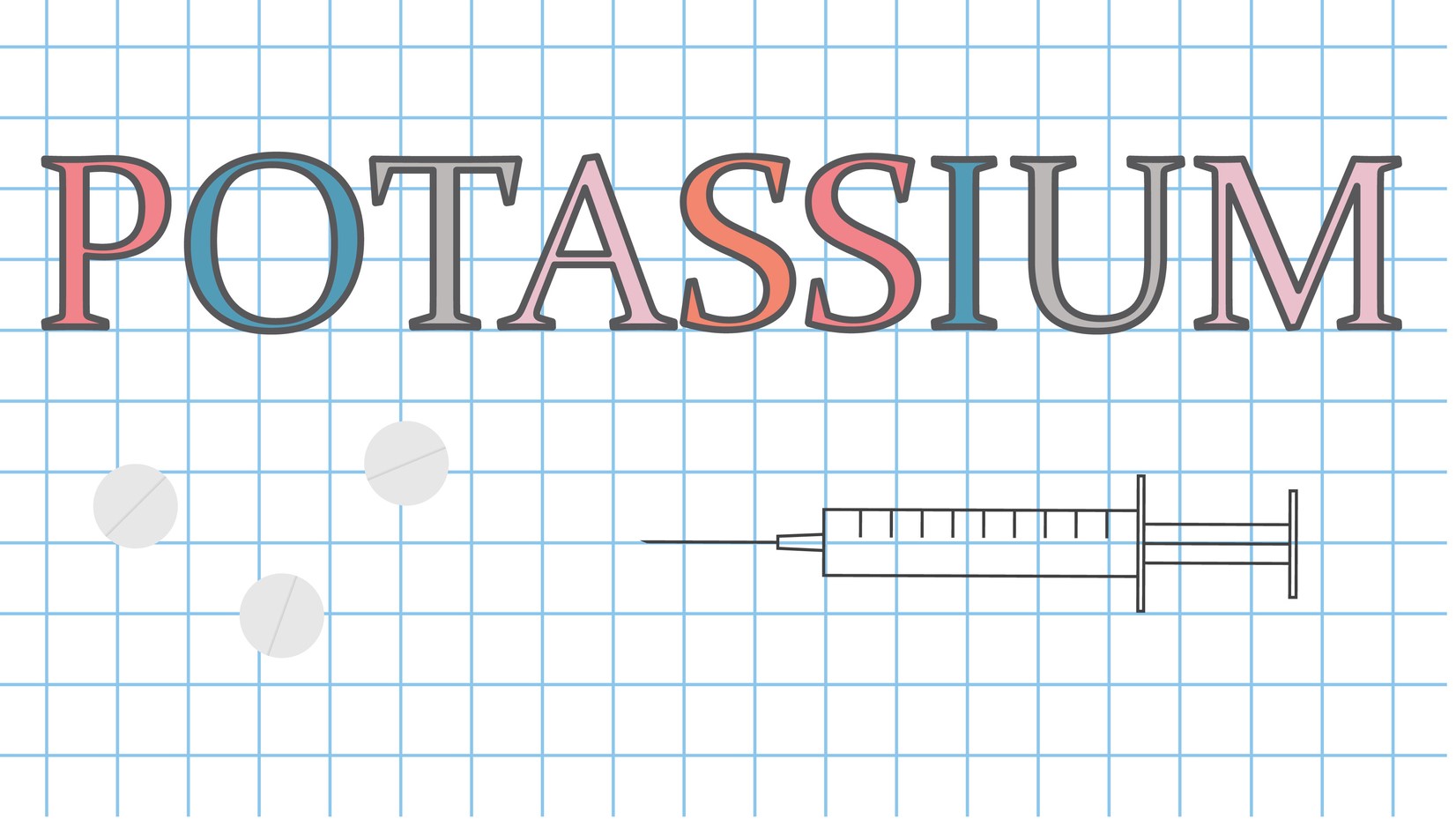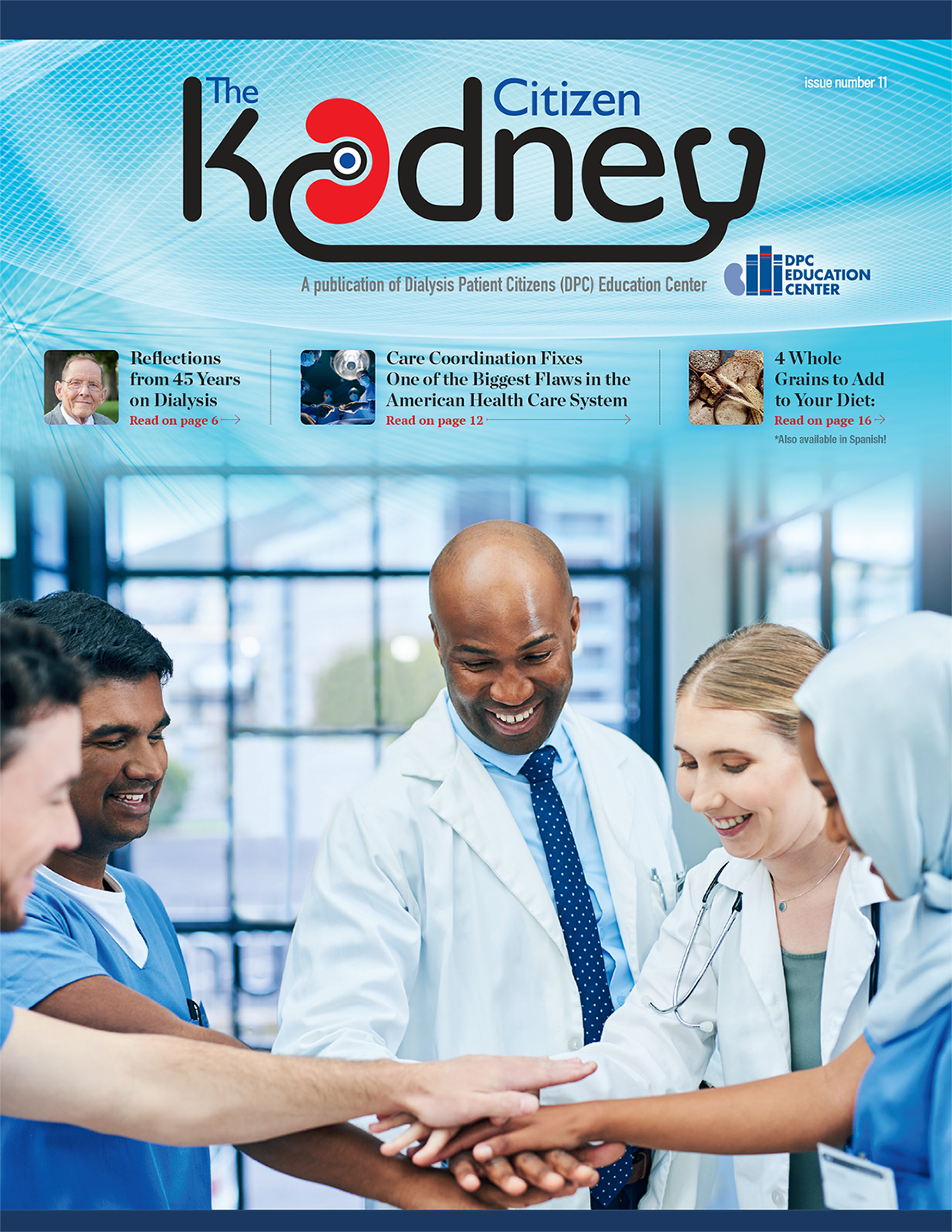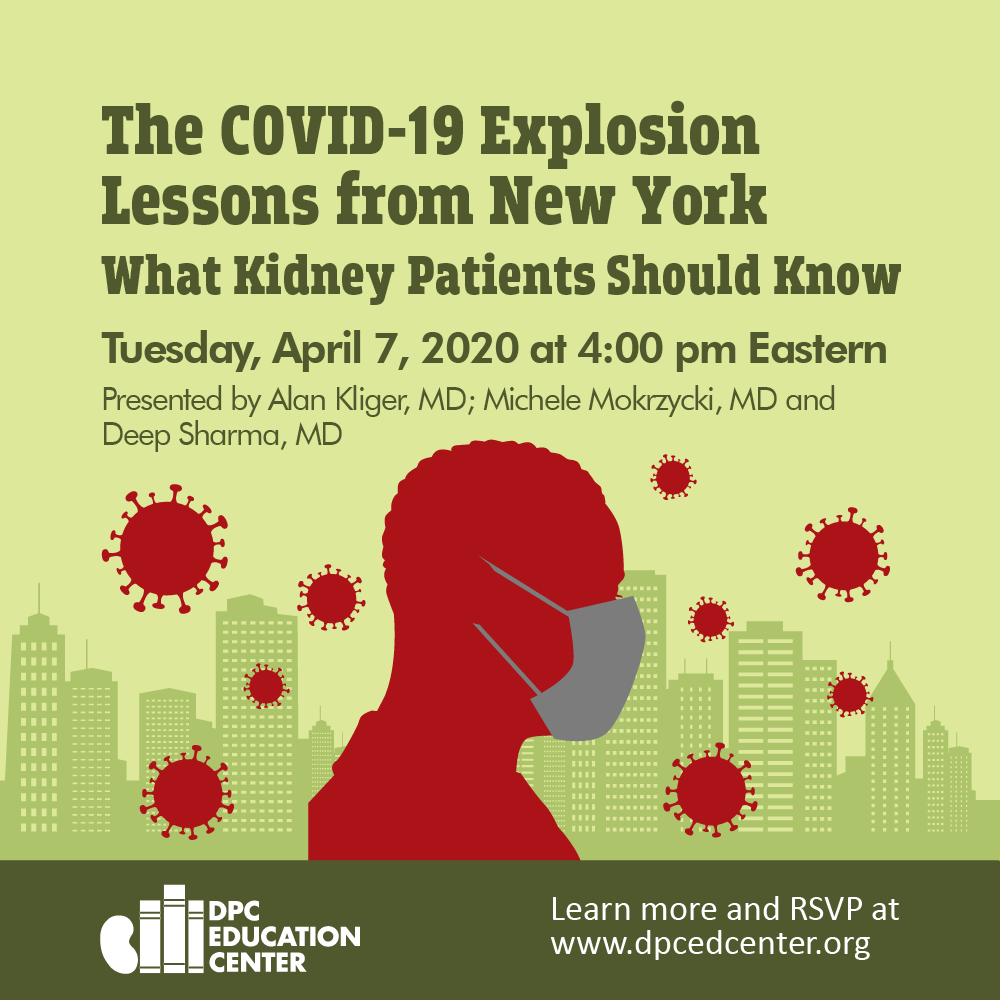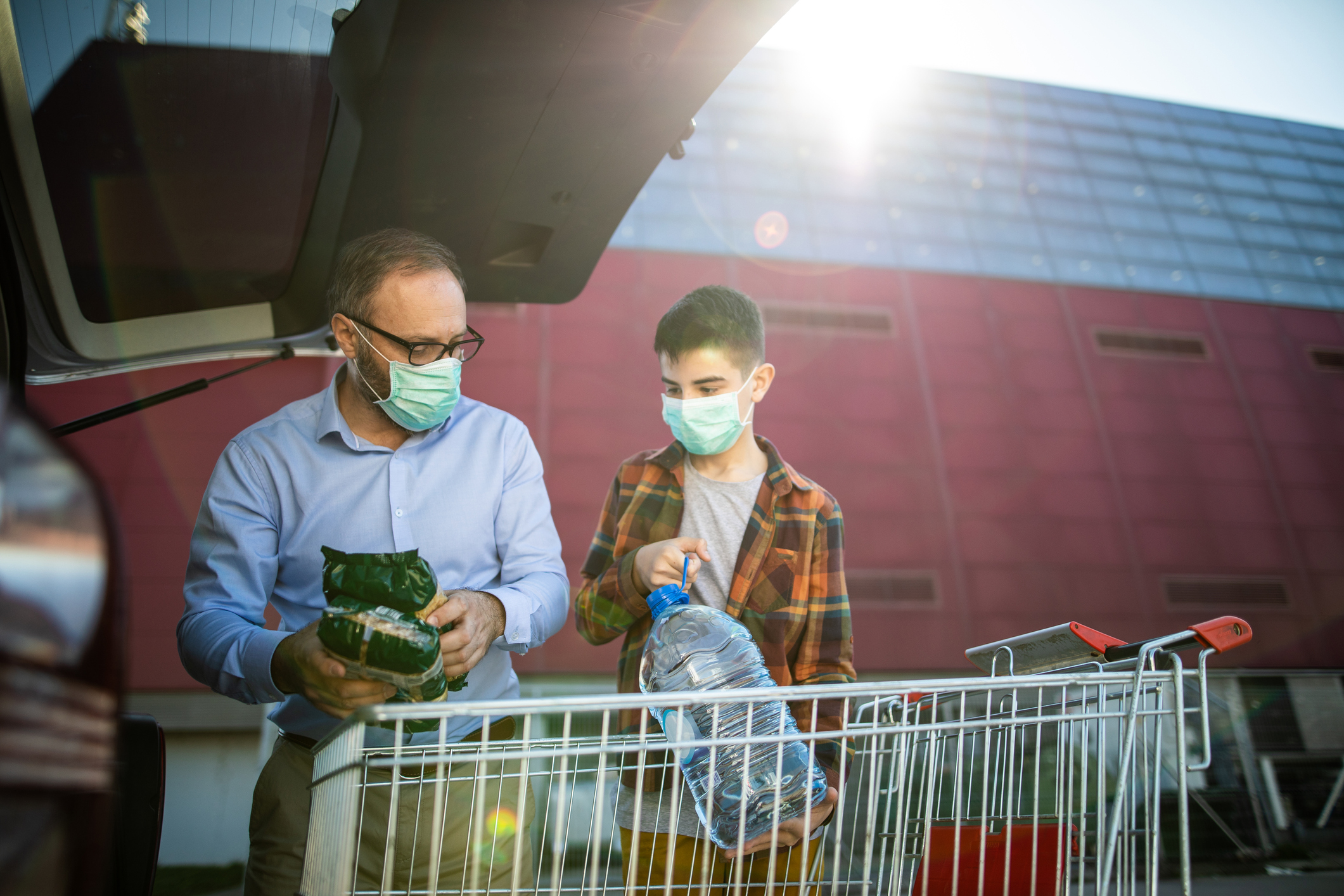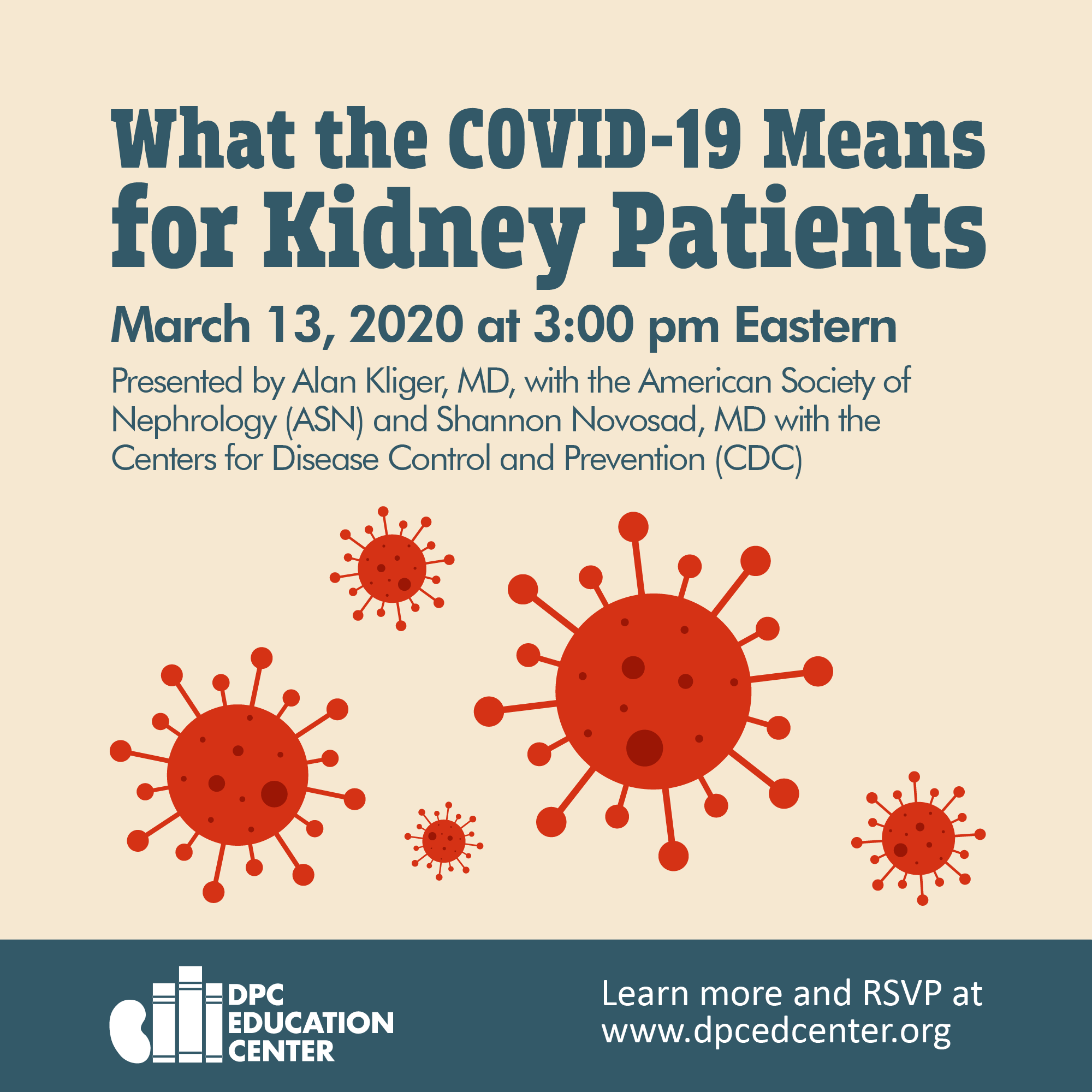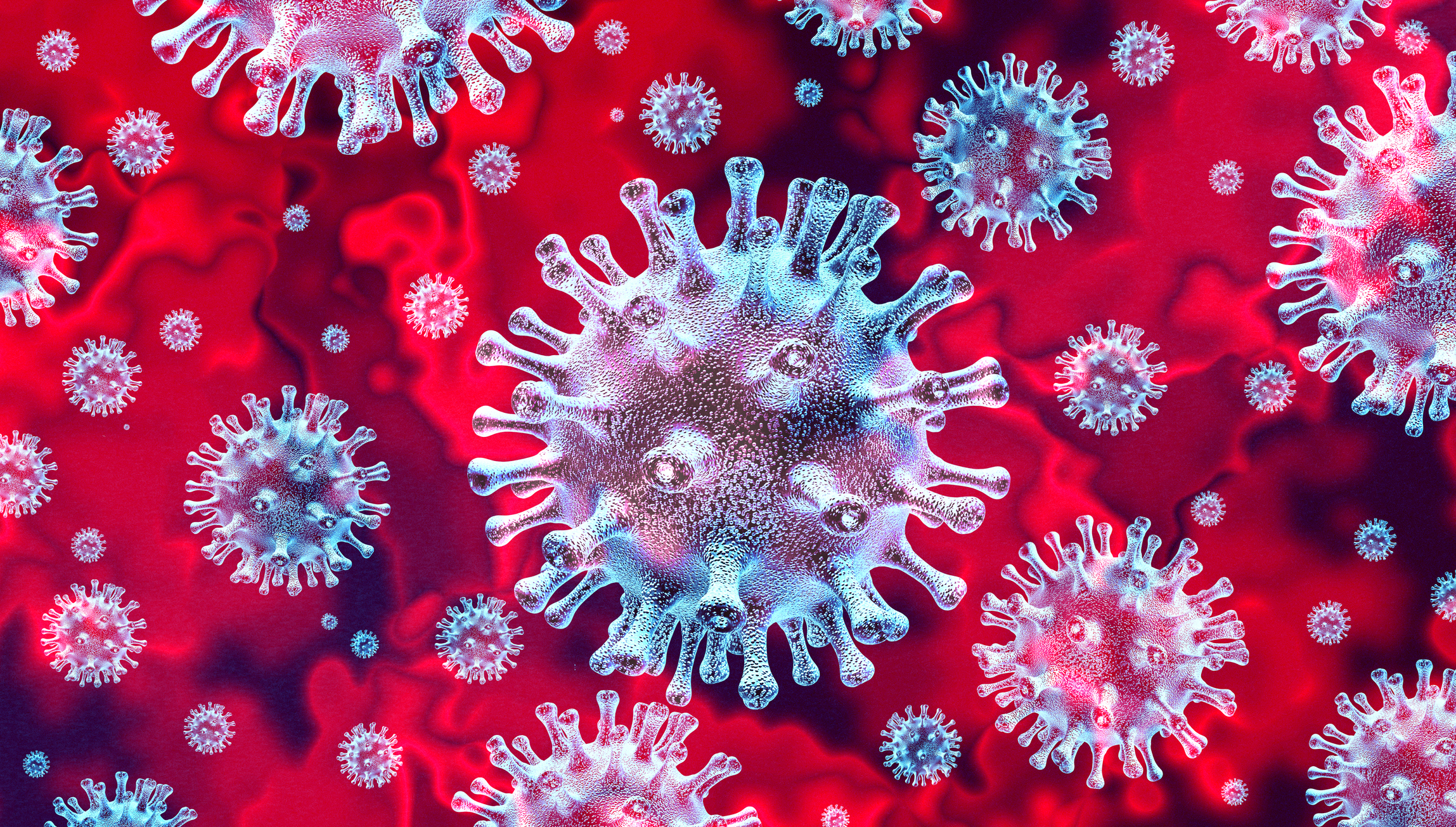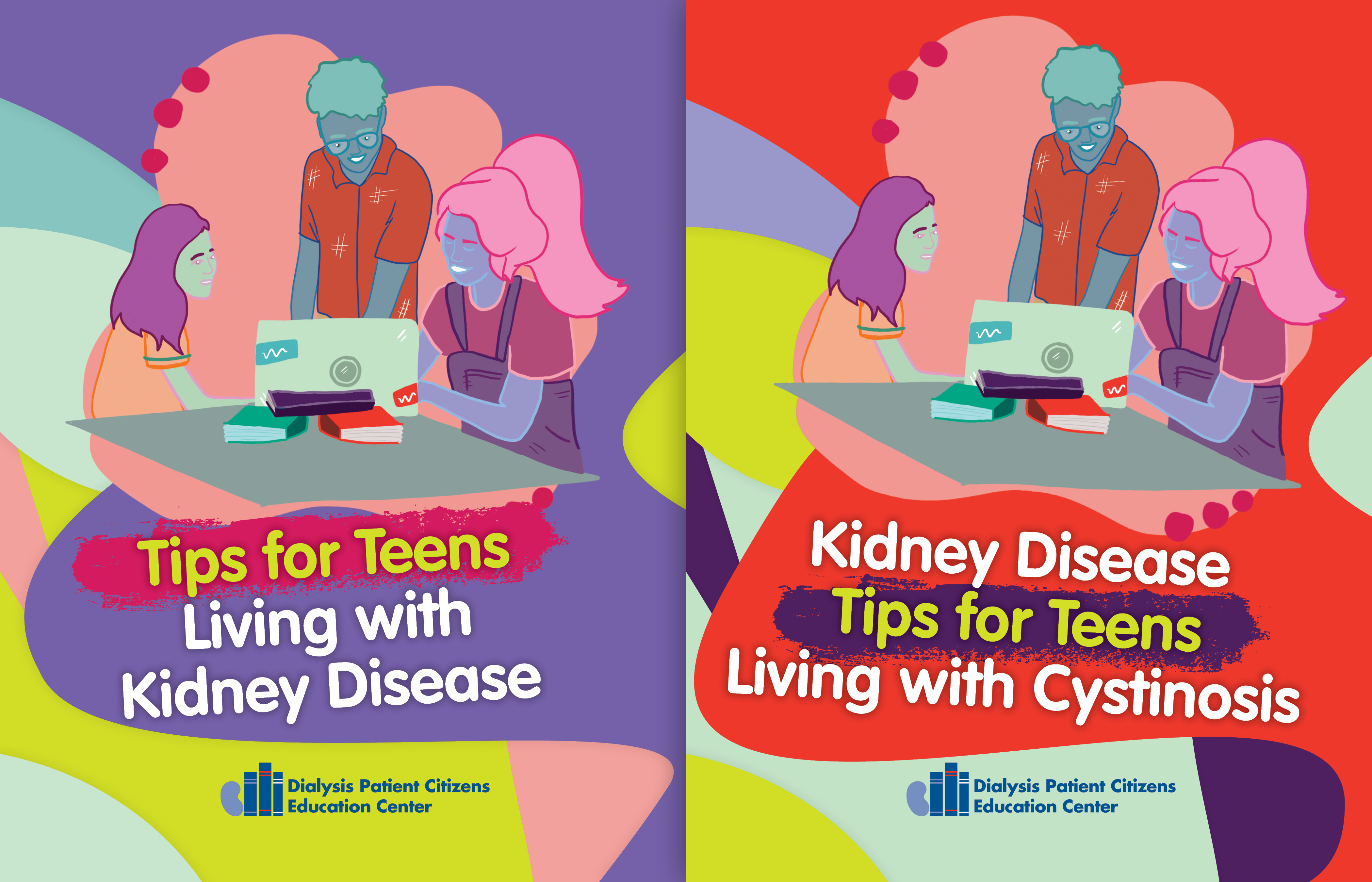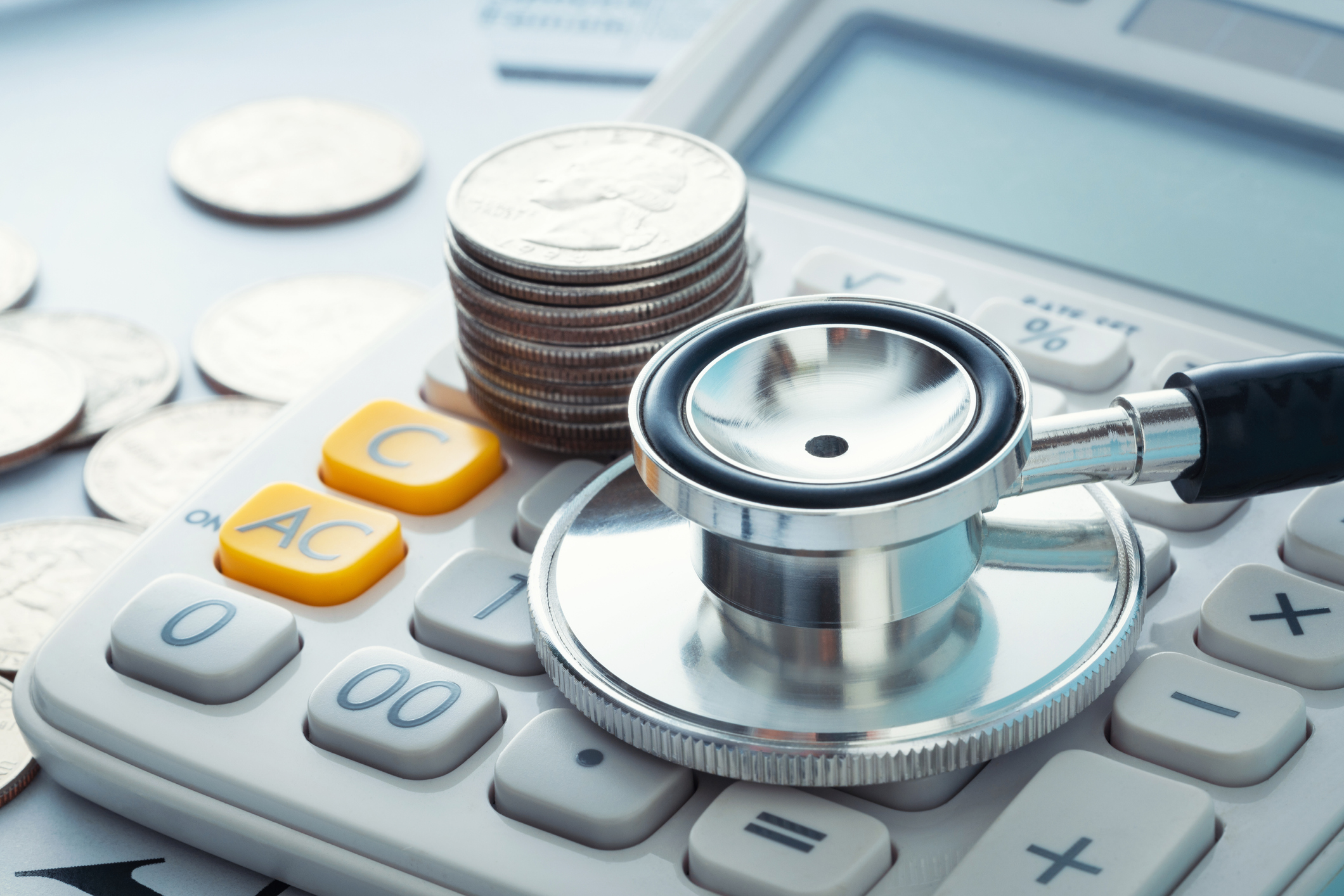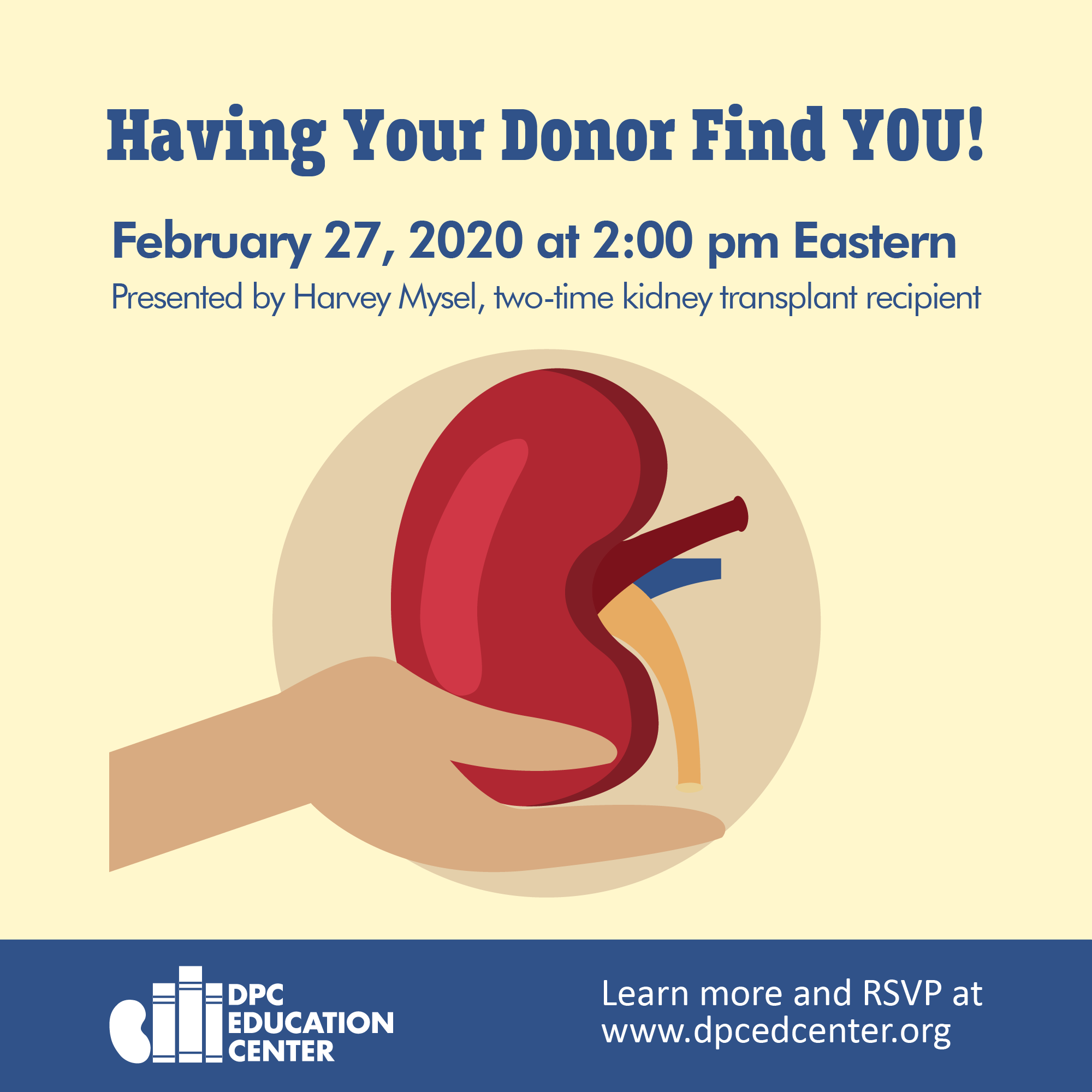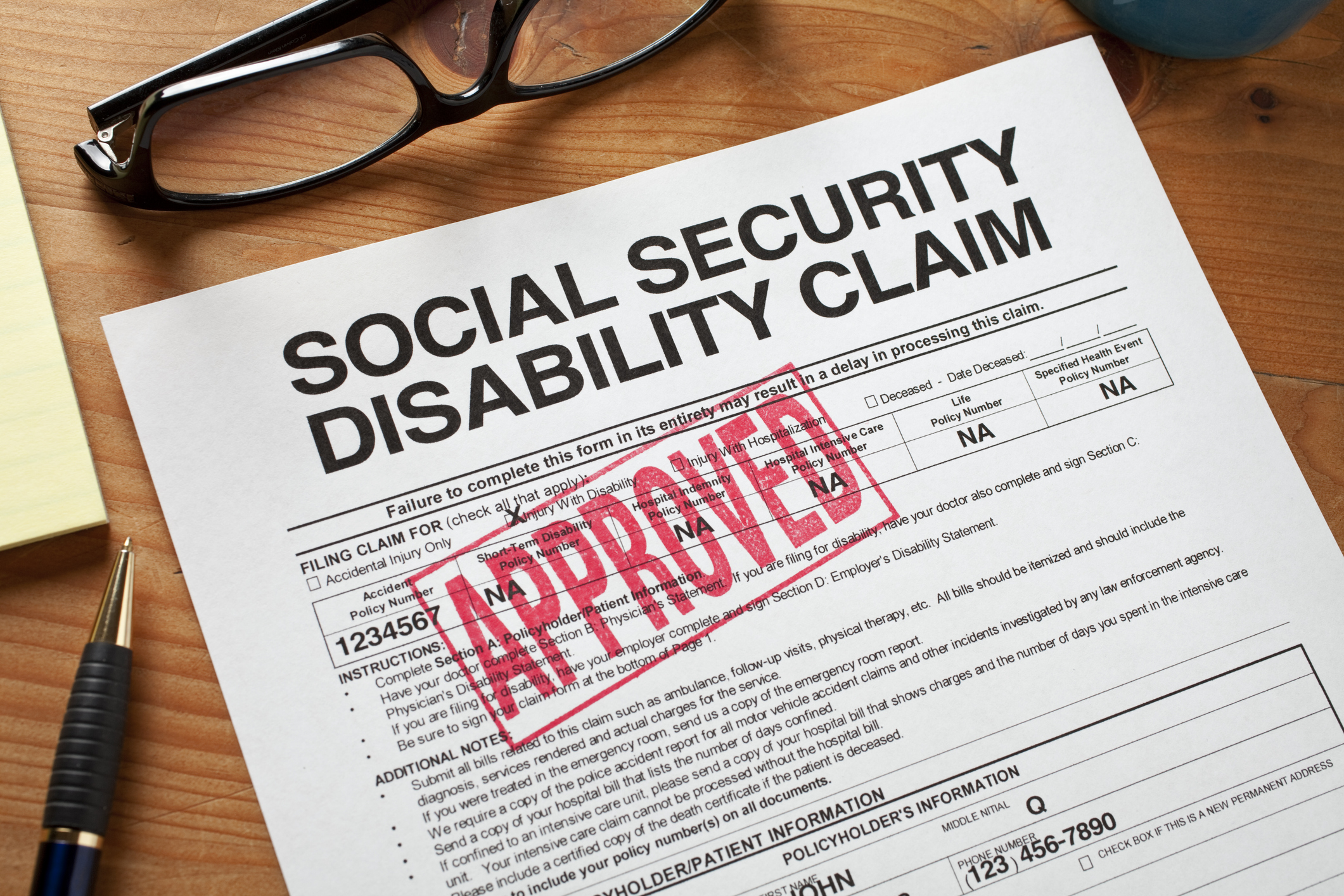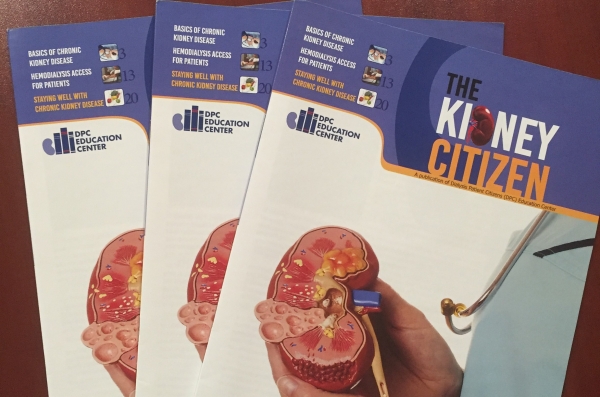News & Events
Discover new information and educational offerings that we provide. Explore our newsletters, blogs and upcoming webinars/conference calls.
Contents:
Bone Mineral Disorder: Calcium, Vitamin D and Phosphorus
During this webinar, you will learn about: 1) The relationship between kidney disease and your bones, 2) Bone Mineral Disease and 3) How diet impacts renal bone mineral disorder.
Advancing Care Coordination for Dialysis Patients: An Update
By Jackson Williams, Vice President of Public Policy, Dialysis Patient Citizens Efforts to modernize the delivery of quality care to dialysis patients reach several milestones in 2020: Medicare’s first care coordination program for kidney care, the Comprehensive ESRD Care Model, expires at the end of this year; providers have been invited to participate in a new program, the Comprehensive Kidney Care Contracting Model; end-stage renal disease (ESRD) patients will, in October, for the first time have access to their choice of Medicare Advantage plans effective January 1, 2021; and a new bill is being introduced in Congress to create another integrated care option for kidney patients. Why Care Coordination? Most dialysis patients are served by [...]
Treatment of Hyperkalemia in Dialysis Patients
Hyperkalemia is a potentially life-threatening electrolyte disorder and is more often seen in people who have End Stage Kidney Disease than the general public. For people WITHOUT kidney failure, potassium, an important mineral within the body, helps regulate fluid balance, muscle contractions and nerve signals. When people eat more potassium than their body needs, the kidneys filter and excrete out any extra through the urine. However, when the kidneys do not work, potassium can build up in the blood and cause hyperkalemia/high potassium. You can learn more about foods high in potassium and hyperkalemia in Issue 10 of our patient newsletter, The Kidney Citizen. You also can learn more about the basics of kidney disease [...]
Reflections from 45 Years on Dialysis
By Jack Reynolds, DPC Board Member I have survived on in-center hemodialysis for the last 45 years. I have also received Medicare for all those years to pay for most of my dialysis and other medical needs. I currently reside outside the village of Palmyra, Iowa. One of the first group of Patient Ambassadors to advocate in Washington, D.C. in 2005, I have visited Capitol Hill many times since. Because of the cost, time and effort it takes to keep a kidney patient healthy, I feel that it is important to be aware of issues and legislation that can impact our choices of treatment modalities, drugs or medical insurances. Diagnosis Kidney replacement therapy. Those three [...]
The Kidney Citizen Issue 11
An article in Spanish; reflections on 45 years on dialysis; care coordination; 4 whole grains to add to your diet; and more!
Beyond Sanitizing and Social Distancing–A Healthy Circadian Rhythm May Keep You Sane and Increase Resilience to Fight COVID-19
By Satchin Panda, University of California San Diego Social distancing and washing hands have become the frontline in the fight against COVID-19, but there is another powerfully protective resource immediately available to all: your circadian rhythm. I head a lab that researches circadian rhythms, the daily cycles of bodily functions that form the foundation of good health. These body clocks, found in nearly every organ of the body and part of the brain, are central and vital to a properly functioning immune system. A synchronized circadian rhythm in the lungs, heart, kidney and brain ensures that the processes in our body go as planned while the immune system can effectively fight and defeat a [...]
Connect with the DPC Ed Center on Social Media
The DPC Ed Center is now on Instagram and LinkedIn! Be sure to follow us to learn about our latest webinars, online courses, education materials, resources and more. In addition to these platforms, you can also find us on Facebook, Twitter and YouTube. Use the links below to get started: Instagram LinkedIn Facebook Twitter YouTube
The COVID-19 Explosion—Lessons from New York—What Kidney Patients Should Know
During this webinar you will learn the latest on: 1) What kidney patients need to do (dialysis & transplant), 2) What dialysis facilities are doing and 3) What we can learn from New York’s COVID-19 experience.
COVID-19 Resources for Dialysis Patients
Updated May 6, 2020 Earlier this month the President signed the “Families First Coronavirus Response Act,” which is a bill that will increase funding to several federal programs in response to the COVID-19 viral outbreak. The bill aids Americans in the areas of healthcare (including COVID-19 testing), nutrition, paid sick leave, unemployment, family and medical leave, and more. Below is a list of resources for dialysis patients to help them get additional support during the COVID-19 viral outbreak and beyond. Resource topics include: disability, financial assistance, nutrition, healthcare, housing and utilities, jobs, transportation, women and children, daily living, and staying safe. In addition, visit your state department of health website for COVID-19 information that [...]
Dialysis–A Gift for Me
Irwin Dunsky By Irwin Dunsky I found out my kidneys were disintegrating about seven years ago. They were working about thirty-five percent. I stated watching some of the things I was eating and a year later they were at thirty percent. My doctor told me that soon I would have to get a new kidney if I didn’t watch it. My kidneys kept going down, and four years ago they reached twenty percent functioning. I went to three hospitals to get on a kidney transplant list. They all told me that my heart was a risk factor that they wouldn’t take. My kidneys finally went down to fifteen percent. Then three and a [...]
What the COVID-19 Means for Kidney Patients
Learn about COVID-19 and what you and your family can do to protect yourselves. You will also learn about the CDC’s guidance for dialysis facilities and how your facility staff is working to prevent the spread of infection. Presented by: Alan Kliger, MD, with the American Society of Nephrology (ASN) and Shannon Novosad, MD with the Centers for Disease Control and Prevention (CDC) About the Presenters: Shannon Novosad, MD, MPH is a Medical Officer with the Dialysis Safety Team in the Division of Healthcare Quality Promotion (DHQP) at the Centers for Disease Control and Prevention. Dr. Novosad received her medical degree from the University of Alabama at Birmingham (UAB). In 2015, Dr. Novosad came to CDC [...]
Coronavirus Disease (COVID-19) Information for Dialysis Patients
Updated 3/26/2020 Coronavirus disease 2019 (abbreviated COVID-19) is a new respiratory virus spreading to the United States. Although the health risk is low in this country at this time, we know that people who have chronic illnesses, weakened immune systems and/or are over the age of 60 could pose an increased risk if they develop the disease. That said, it is not a time to panic, but rather a time to use procedures that help prevent the flu, coronavirus and other infections. Prevention A great prevention tip is to avoid getting or sharing germs that can cause infections. Here are some ways to practice this tip. Wash your hands. It is one of the [...]
New Resources for Teens
These booklets were developed for tweens and teens who learn their kidneys are not working and they will need dialysis or a transplant. The booklets provide a brief overview of coping with kidney disease, being part of their health care team, the importance of diet, taking medication, and treatment methods. They also touch on feelings related to having a chronic illness, family and friends, and being a teen. The development of both booklets included input from kids currently on dialysis, parents, adults who had kidney disease as children, and nephrologists. Although both booklets are similar, one focuses on teens who learn they have kidney disease and the other is for teens who already have cystinosis [...]
New Online Pain Management Course
DPC Education Center is now offering an online, free-to-use resource center to learn more about chronic pain and effective ways to live with it. In the program, you will explore the concept of pain, learn ways to talk about it, and discover methods of managing pain including medication, alternative medicine, nutrition and exercise, self-management, and laughter and humor. You will also have the opportunity to tell your story and hear from others about their experiences. Check out the Course
Where Kidney Patients Can Get Help with Medical Bills and Employment
There is a resource—developed by patients with kidney disease—that provides an overview of where to get help with medical bills and employment. The types of medical bill tips highlighted include: An overview of Medicare coverage for people with End-Stage Renal Disease Where you may find help in getting supplemental coverage for the 20% Medicare doesn't pay Assistance for special populations (e.g., veterans, children, people with disabilities, etc.) Programs that help cover expenses related to health insurance premiums, living organ donation and medications. Assistance provided by some electric companies for home hemodialysis patients Employment tips featured include where to find help with: Returning to work Beginning a new line [...]
5 Ways to Improve Your Heart Health
If you worry that you or someone you love will get heart disease or even have a heart attack, it’s understandable. February is American Heart Month, and heart disease is the leading cause of death for men and women in the United States, according to the National Heart, Lung, and Blood Institute (NHLBI). Research shows you can lower your risk, particularly if you team up with family, friends or co-workers. This kind of social support may be the key to your success. “Studies show that having positive, close relationships and feeling connected to others benefits overall health, blood pressure, weight and more,” said NHLBI’s Dr. David Goff, director of cardiovascular sciences. Consider these five tips [...]
Ideas for Packing a “Go Bag” for Unanticipated Overnight Hospital Stays
Sometimes, having a chronic disease—such as End-Stage Renal Disease—can result in spending the night in the hospital unexpectedly. One tip to make the stay more comfortable is having a pre-packed "go bag". This could be helpful for not only patients being admitted, but also the caregivers that accompany them. To get started, below are some areas to focus on when pre-packing the bag: Comfortable clothes and bedding Entertainment Sleep aids Snacks Copies of important documents and helpful lists Toiletries For more details about specific items to include in these categories, read the full article.
Having Your Donor Find YOU!
During this webinar the following points will be covered: 1) Learn about the benefits of receiving a kidney from a living donor, 2) Learn how to talk to others about kidney donation, 3) You don’t need to “ask” someone to donate, it’s all about “telling your story” and 4) Join us to develop a plan for a successful living kidney transplant experience.
Survey: Seeking Advice from Parents of Children with Kidney Disease
The DPC Education Center is developing an online program to serve as a resource for parents of children with kidney disease. In order for this program to be successful, we need the guidance of parents willing to share tips and stories about how they helped their child thrive while living with this condition and juggling life's multiple demands. Feedback is needed in the areas of treatment, medication and mental health. If you are a parent of a child with kidney disease and would like to help us with this project, please click this link (or answer the questions in the box below) to fill out the short survey: Create your own user feedback survey
Disability Benefits for Kidney Disease Patients
There are more than 37 million people in the US living with Chronic Kidney Disease (CKD) and over 700,000 with End-Stage Renal Disease (ESRD). ESRD patients require multiple dialysis treatments a week in order to stay alive. Many CKD and ESRD patients find it difficult to continue working because of the time consuming treatments and the toll it has on their bodies. If you have kidney disease or ESRD and are not able to continue working, you may file a claim for Social Security benefits. While not guaranteed, these benefits help many patients cover some of their lost wages. Many CKD or ESRD patients use disability benefits to pay for living expenses like food, rent, [...]

